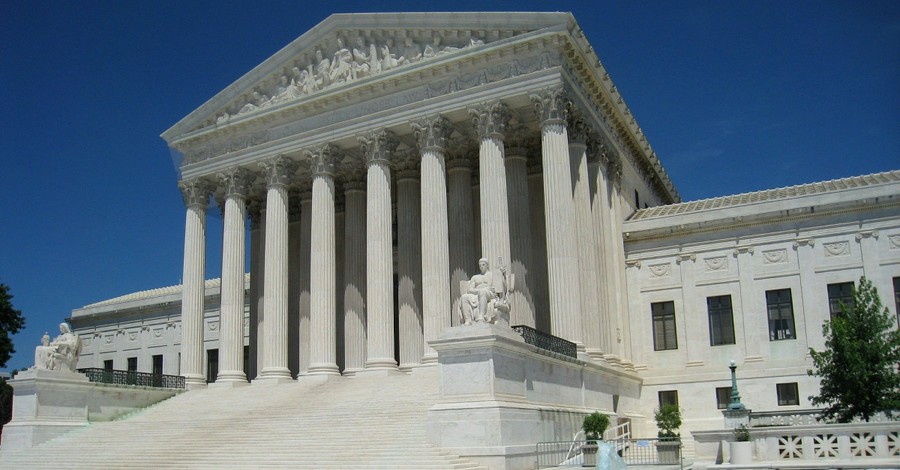
A coalition of 18 states is asking the U.S. Supreme Court to uphold Mississippi’s 15-week abortion ban, pointing to “advances in science” and “brutal” abortion procedures that involve “ripping a fetus apart” limb by limb.
The Mississippi law, passed by the legislature and signed by the governor in 2018, prohibits abortions after 15 weeks’ gestation except in medical emergency and in cases of severe fetal abnormality.
The U.S. Fifth Circuit Court of Appeals struck down the law, but the multi-state coalition is asking the Supreme Court to uphold it. In a July brief, the states argue “much has changed since Roe,” with fetal viability decreasing from 28 weeks’ gestation in 1973 – the year Roe v. Wade was handed down – to 21 weeks today.
The coalition says the Fifth Circuit’s decision conflicts with Roe’s legal framework but also the framework of the 1992 Planned Parenthood v. Casey decision and the 2020 June Medical Services decision. All were abortion-related cases.
“The Fifth Circuit refused to follow Casey and instead applied a novel test that renders irrelevant both the impact of a law and whether the State has an interest in the excruciating pain an unborn child experiences as it is torn limb from limb during an abortion,” the states argue.
The brief was signed by the attorneys general of Texas, Alabama, Alaska, Arizona, Arkansas, Georgia, Idaho, Indiana, Kansas, Kentucky, Louisiana, Missouri, Nebraska, Ohio, Oklahoma, South Carolina, Tennessee, and West Virginia. Texas Attorney General Ken Paxton led the coalition.
The Mississippi law’s findings note that the majority of abortion procedures performed after 15 weeks use a procedure (dilation and evacuation) that involves using instruments “to crush and tear the unborn child apart before removing the pieces of the dead child from the womb.”
The law is supported by science, the 18 states argue in the brief. Additionally, modern “scientific evidence … undermines the factual assumptions the Court relied on in Roe and Casey.”
“In the 47 years since Roe, innumerable advances in science and medicine inform our understanding of fetal development and the capacity to experience pain,” the brief says. “Yet the district court declared all scientific developments irrelevant and the viability line absolute. Not only is that wrong under this Court’s precedents, but it would strip state legislatures of the ability to legislate effectively in light of evolving knowledge.”
The brief argues that the Fifth Circuit’s decision conflicts with the Planned Parenthood v. Casey decision and the June Medical decision, “which require courts to assess whether an abortion law is reasonably related to a legitimate state interest, and whether the law presents a substantial obstacle to abortion access.”
Mississippi has a legitimate state interest in “preventing fetal pain, given the scientific evidence that a 15-week-old fetus has developed the brain structures necessary to feel pain,” the 18 states say in their brief.
The multi-state brief says that the law does not present a substantial obstacle because it gives “Mississippi women a reasonable opportunity – nearly four months – to make their choice.” Mississippi’s sole abortion clinic performs abortions up to 16 weeks’ gestation, and the plaintiffs “introduced no evidence to explain why these women could not schedule their abortions one week earlier,” the brief says.
“Unborn life has value,” the brief says.
The brief even quotes Roe author Justice Harry Blackmun, who in a 1989 case said the “State's interest in the protection of an embryo – even if that interest is defined as 'protecting those who will be citizens' ... – increases progressively and dramatically as the organism's capacity to feel pain, to experience pleasure, to survive, and to react to its surroundings increases day by day.” Two other justices who voted with the majority in Roe – William Brennen and Thurgood Marshall – joined Blackmun in his 1989 opinion.
“Thus, multiple Justices that joined Roe agree that fetal pain and development are important considerations in measuring the State’s interests,” the 18 states say in the brief. “If so, then States can enact measures to prevent developed unborn children from suffering the pain of being dismembered during an abortion.”
Roe itself, the brief notes, said a woman does not have the right “to terminate her pregnancy at whatever time, in whatever way, and for whatever reason she alone chooses.”
“The Fifth Circuit’s test treats the right to previability abortion as absolute such that no state interest could ever justify any limitation of abortion previability,” the coalition brief says. “But no other constitutional right enjoys such absolute unquestioning protection, which perhaps is why Roe and Casey do not elevate the abortion right above all others.”
Related:
Biden Pledges to End Trump’s Religious Protections against Abortion/Contraceptive Mandate
Supreme Court Strikes Blow to Obamacare’s Abortion/Contraceptive Mandate
Photo courtesy: 272447/Pixabay
Michael Foust has covered the intersection of faith and news for 20 years. His stories have appeared in Baptist Press, Christianity Today, The Christian Post, the Leaf-Chronicle, the Toronto Star and the Knoxville News-Sentinel.










